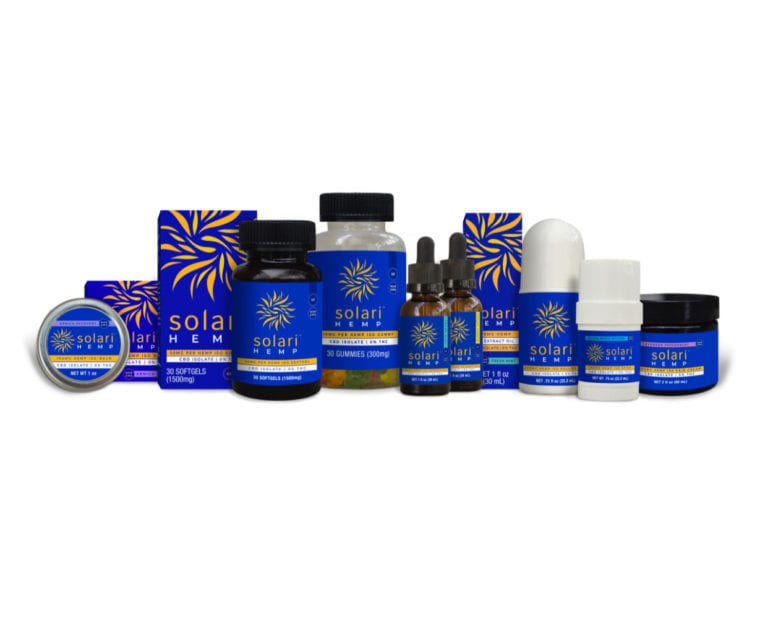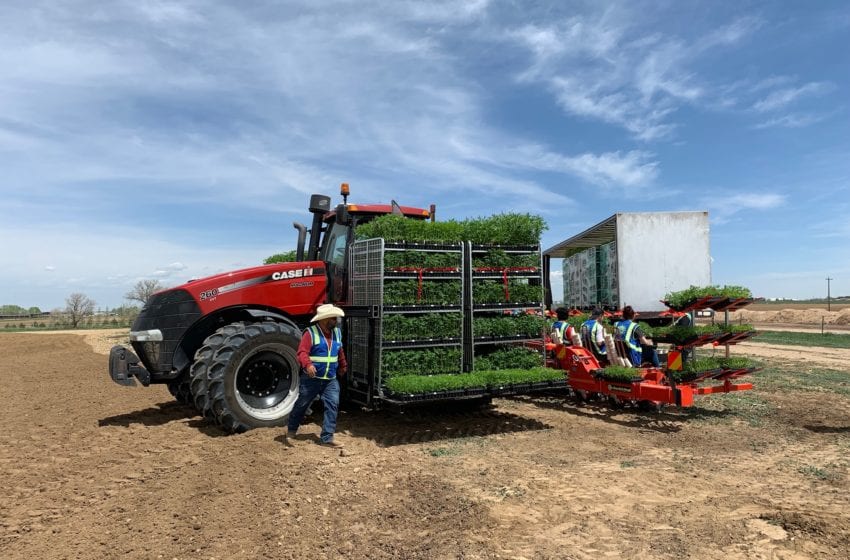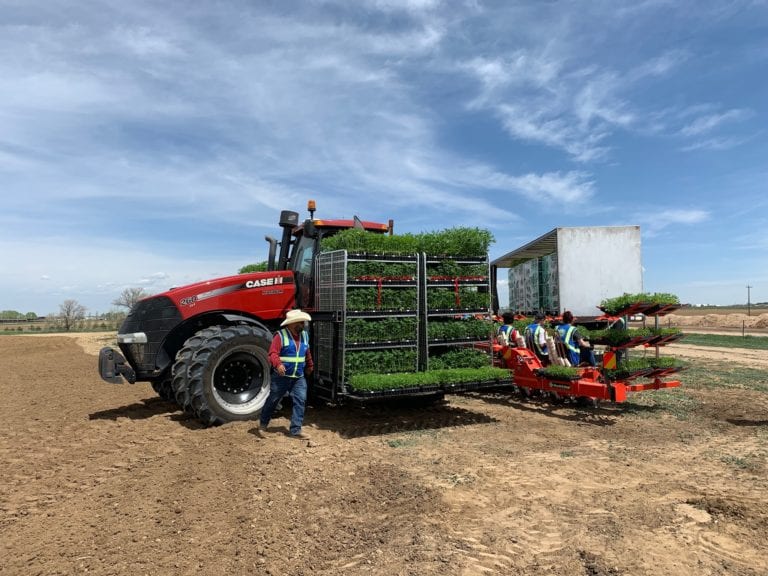
Solari Hemp is a Colorado-based fully integrated farm-to-shelf supplier of THC-free CBD products.
By Timothy S. Donahue
Cannabidiol (CBD) is one of the fastest-growing industries on the planet. It’s motivated by the ever-growing popularity of the supplements on the global market. However, according to a Consumer Brands Association (CBA) survey, nearly four in 10 Americans incorrectly assume CBD is just another name for marijuana. The survey also found that consumers said that the quality and safety of the product were extremely important when making a CBD purchasing decision.
Solari Hemp, founded in 2018 in Longmont, Colorado, USA, is a fully integrated farm-to-shelf hemp company with on-premises growing, extracting, shipping and sales/marketing capabilities. The company sells only 100 percent THC-free CBD products. Solari Hemp maintains full control over the production/development process of its products from start to finish, according to Colin Gallagher, co-founder and CEO of Solari Hemp.
“For us, it’s about being a company that has roots in the C-store industry and understands the needs and complexities of operating with products that are in a regulatory gray area,” he says. “We want our partners to trust the team behind Solari and the people behind it; trust the brand and the quality of the product you’re getting. We test all the way through seed to shelf. We offer transparency in the testing. We are doing things the right way. It’s about being good retail partners. Our success is their success.”
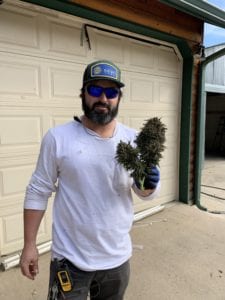
Solari means “land exposed to the sun” in Italian. As a child’s name, it can be translated to “beauty greater than the sun.” Gallagher says he and his team wanted to create a packaging design that didn’t have the in-your-face marijuana branding often associated with such products or that could be misconstrued as a pharmaceutical product. The sun became the logo. It even has a little hidden “S” in the middle.
Gallagher says he was working at Smoker Friendly International, and the CBD market was just starting to grow. The company decided it wanted to start carrying a CBD brand in its stores. Gallagher soon discovered that there was little transparency throughout the CBD supply chain, and many manufacturers could not guarantee consistent quality in their products. No product could meet the quality standards and quantities he needed. Gallagher wanted to do it better. He soon started talking with two industry colleagues and discovered they had similar ideas about what a CBD brand needs to be successful.
“We decided that we could all work together and create a new company … use our experience, our trust and established relationships within the C-store industry to create a brand and a product that had a full chain of custody from seed to shelf,” he says. “We decided to just get out there and do it ourselves.”
There is a lot of talent on the Solari team. Myorr Janha, co-founder and chief marketing officer, was previously responsible for global marketing, corporate communications and business development initiatives for Rush Communications and Simmons Design Group. With over 25 years of marketing experience managing a variety of brands spanning diverse sectors in entertainment, lifestyle and philanthropy, Janhaeads Solari’s marketing, advertising and PR strategy.
Jake Salazar, co-founder and Solari’s chief development officer, is a fifth-generation Colorado native. He was named one of the 100 most influential people in the cannabis industry by High Times magazine in 2018 and 2019 for his accomplishments over the past 12 years in cannabis genetics and the hemp business. Salazar heads genetics R&D and business development for Solari. He also helped craft the original legislation to legalize marijuana in Colorado.
Gallagher oversees the daily operations of the company. He grew up around consumer product goods and convenience retail operations and previously served as the director of operations and business development for Smoker Friendly.
Back to the farm
While many things stand out about Solari, its farming operation is the foundation of the company. In 2017 and 2018, the CBD market was experiencing shortages of wholesale CBD. Gallagher didn’t want to go through the process of creating a product and launching a product only to have a supply shortage and not be able to support sales. That’s when the company started looking for its own farms.
“We found some farmers who had farmed hemp from early 2014 and then got out of it. They’re traditional, fourth-generation Colorado farmers. We brought them in as equity partners. We really wanted to learn about the product and be leaders in the industry,” explained Gallagher. “There’s still a lot of education that needs to happen in terms of just understanding hemp [compared to marijuana]. We are trying to be a leader in the market and do things the right way, our way, and have full transparency.”
The Solari team began its first farm on just three acres to test its product. In 2018, Solari farmed 150 acres (about 6,000 plants) and continues to have the ability to expand. Like many hemp farmers, Solari did not farm in 2020 because there was an excess of hemp biomass in the market due to the Covid-19 pandemic. The company needed to step back. It was about survival.
“The pandemic put a damper on sales. We know a lot of farmers and extractors who went out of business. There are high capital costs in the extraction process, and you have to have high-yielding crops. The higher your CBD potency, the better your yields. It’s all about efficiencies and that effectively impacts your cost of goods sold,” says Gallagher, adding that farming is also expensive. “Farming is challenging. The harvesting technology, drying technology—especially when you have a large crop. You need to get it out of the ground and get it dried and ready for extraction so it doesn’t go bad.”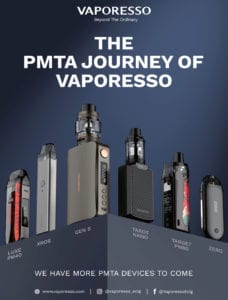
Hemp is like a vacuum cleaner, absorbing all that a soil has to offer, both good and bad. Gallagher says that heavy metals and pesticides on the plant or in the soil may be present in the resulting oil after the hemp is refined. The only way to avoid exposure to these contaminants is to know exactly where the hemp is grown. Solari’s seed-to-shelf process ensures its hemp adheres to the company’s high-quality standards. “Our crops are grown on our farms in Colorado without the use of any pesticides and our soil is consistently tested for heavy metals,” says Gallagher. “A reputable brand should always disclose the location [in which] the hemp was grown so a consumer has full disclosure prior to purchasing the product.”
To isolate the CBD-rich oil from the hemp plant, a multistep extraction process is used to remove fats, lipids, cannabinoids and terpenes. Different extraction methods can provide a variety of advantages; however, testing after extraction for pesticides, heavy metals and residual solvents that can be present during the extraction process is vital. “Extraction is just dialing in the equipment to get the highest yields from the crude. We consistently test all of our final products to ensure there are no harmful chemicals or contaminants present within its extracts before it is sent to a third party to be tested again,” says Gallagher. “We control the entire process. Our retail partners, and consumers too, like having that transparency. It gives us an advantage in the market because it’s a product you can trust and there’s traceability. We do third-party testing to ensure consistency and quality. We also use a CBD isolate that guarantees we have absolutely no THC in our products.”
Empire of the sun
Today, the Solari line of products is sold in 2,000 stores to 3,000 stores, including Smoker Friendly, Rutter’s Farms, Town Pump, Food Lion and numerous independent C-stores. The company offers 23 SKUs, including gummies, tinctures, soft gels and topicals (balms, roll-ons and creams).

Gallagher says that launching a brand at the end of 2019 going into 2020 was greatly impacted by the Covid-19 pandemic. In the C-store channel, it’s about face-to-face meetings, building trust in each other and building trust in the product, according to Gallagher. He says that not being able to fully develop those relationships and not being able to go to trade shows and sample the products was a nightmare.
“It was a challenge, for sure. But we adapted. For us, it is more about just being able to be fully transparent and able to deliver a high-quality but affordable product. That’s another one of our big things: affordability. In the C-stores, we don’t [expect people] to come in and pay $50, $60 for a tincture,” explains Gallagher. “It’s something that’s kind of a grab-and-go item, so our lowest-priced item is $6.99. Then it’s supporting the brand, supporting the retailer and understanding their business, and working with them to make the product successful. I think this dedication to the retailer separates us from the pack. It’s about those relationships and doing things the right way and not creating more work for our partners.”
Moving forward, Gallagher says Solari must remain innovative, whether it’s a function of product or delivery. He says the company is currently working on some new products that are expected to come on the market this year. There is so much competition in the CBD industry that Gallagher says you have to think outside the box to survive. He says that CBD beverages, for example, are a fast-growing CBD segment, and that could potentially be part of Solari’s portfolio.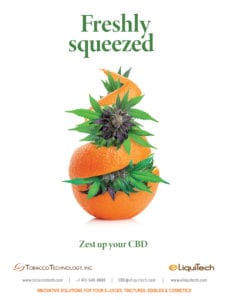
“We see a huge future for the beverage industry, and that’s on our radar. If you’re going to release a new product, it’s got to be something that grabs people’s attention. I mean, at the end of the day, your product has to work, right?” Gallagher asks. “People have to believe in the product itself and then it needs to be different. If you take something that’s like a pull on the cap of a beverage and you push it down and shake it up, that’s different, right? We are trying to be innovative and thinking about things that aren’t currently on the market.”
Regulations are also coming soon for the CBD market in the U.S. The FDA has already announced proposals for the industry. Today, most CBD products are manufactured by smaller companies, and, absent consistent regulation, it is up to the individual businesses to invest in the research that protects consumers. Gallagher says he wants to see responsible regulation, and the industry needs to help decide what those regulations may entail.
“I don’t think it’ll be like the PMTAs [premarket tobacco product applications] the FDA uses with tobacco and vapor. We need input from the industry to get things done the right way. Part of that is keeping the bad actors out,” says Gallagher. “I think this administration will certainly be more friendly to cannabis in general [than it was toward tobacco and e-cigarettes]. I think there will be more regulation on the smokable side, meaning it’s something that you inhale. Anything that is like a tobacco product and used in a similar fashion and is not currently taxed … will be regulated.”
For Solari, the company remains focused on continuing to being an innovator in the industry, focused on becoming a household name. “We want to be a recognizable label,” says Gallagher. “We want Solari to be the brand that people associate with quality and trust. That’s something that will never change.”
